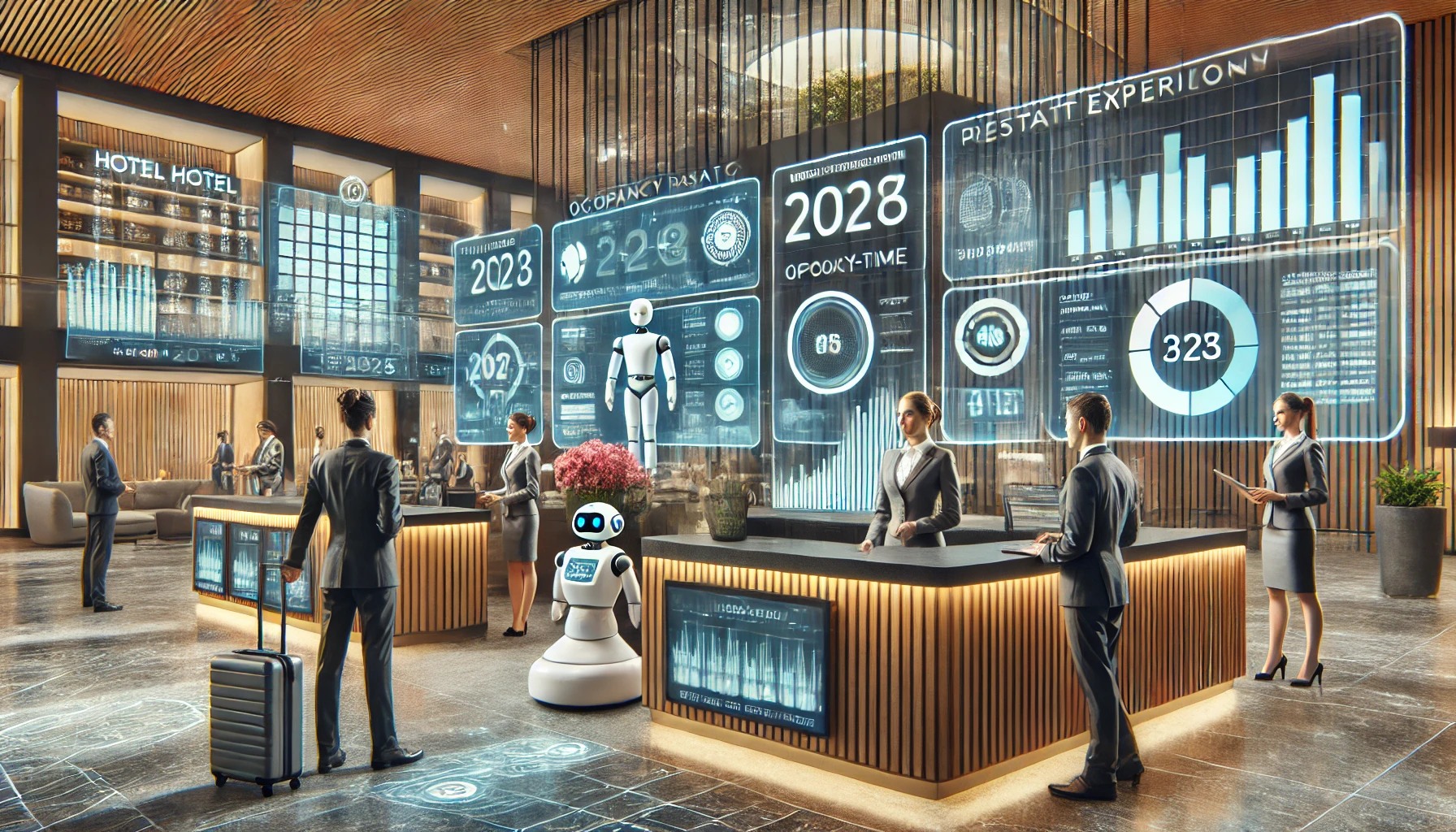As the hospitality industry navigates the complexities of a post-pandemic world, the strategic utilization of data has emerged as a pivotal factor in driving operational efficiency and enhancing guest experiences. By 2025, data-driven decision-making is expected to revolutionize various facets of hotel management, addressing challenges related to operations, human resources, globalization, and overtourism.
1. Automating Operations through AI and Machine Learning
The integration of Artificial Intelligence (AI) and Machine Learning (ML) is set to redefine hotel operations. AI can analyze cloud infrastructures to identify and eliminate redundant services, thereby optimizing costs. Moreover, AI-powered systems can automate routine tasks such as reservations, check-ins, and room assignments, allowing staff to focus on delivering personalized guest interactions. This shift not only enhances operational efficiency but also elevates the overall guest experience.
2. Enhancing Human Resource Management
The hospitality sector continues to grapple with talent acquisition and retention challenges. Automation offers a solution by relieving employees from monotonous tasks, enabling them to engage in more meaningful guest interactions. This empowerment fosters job satisfaction and improves work-life balance, which are critical factors in retaining talent. Additionally, AI can streamline recruitment processes by efficiently screening candidates, thus expediting hiring timelines.
3. Navigating Globalization Challenges
Operating across diverse markets presents hurdles such as political instability, cultural differences, and financing complexities. Data-driven strategies can mitigate these challenges by providing insights into market-specific dynamics. Implementing integrated supply chain management systems ensures timely delivery of goods and services, maintaining operational continuity. Furthermore, Customer Relationship Management (CRM) tools can be tailored to accommodate cultural nuances, ensuring that marketing efforts resonate with local audiences.
4. Addressing Overtourism with Data Insights
Overtourism poses significant risks to popular destinations, leading to environmental degradation and diminished visitor experiences. Data analytics can monitor tourist flows and predict peak periods, enabling authorities and businesses to implement measures that distribute visitor traffic more evenly. This proactive approach helps preserve the integrity of destinations while maintaining tourist satisfaction.
The Road Ahead: Embracing a Data-Driven Future
By 2025, the hospitality industry is poised to fully embrace data-centric methodologies. Investing in advanced data analytics and AI technologies will be crucial for hotels aiming to enhance operational efficiency and deliver exceptional guest experiences. Moreover, fostering a culture that values data-driven decision-making will empower employees to contribute effectively to organizational goals.
In conclusion, the strategic application of data is set to transform the hospitality landscape by 2025. Hotels that leverage data insights to automate operations, manage human resources, navigate globalization, and address overtourism will be well-positioned to thrive in an increasingly competitive market. Embracing this data-driven paradigm is not merely an option but a necessity for sustained success in the evolving hospitality industry.


